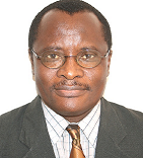Birth Preparedness and Complications Readiness among Antenatal Clinic Attendees in a Southern Nigeria Capital City: Findings across Tiers of Healthcare
Keywords:
birth preparedness, Complications readiness, Knowledge, PracticeAbstract
Introduction: Birth Preparedness and Complication Readiness is one of the vehicles for attaining a positive pregnancy experience by planning for normal birth and actions needed in the event of an emergency. We assessed women`s plans concerning their index pregnancy. Methodology: This was a multi-center-descriptive cross-sectional study designed to assess birth preparedness and complications readiness among 289 pregnant women attending 3 different antenatal clinics across the 3 tiers of healthcare in Uyo, South-south Nigeria. Results: The mean age of Respondents was 27.8 + 6.6 years (range 15-49 years). Most (87.2%) had heard of birth preparedness, mainly from health facilities (83.7%). The majority (72%) had a good level of knowledge of the components. Most of them had received advice on birth preparedness (85.1%), identified a skilled birth attendant (79.6%), saved money (85.8%) for delivery, and identified a means of transport to the hospital (79.6%) in the index pregnancy. The Respondents' BPCR in identifying a place for delivery was significantly associated with their level of education (X2 =12.156, P=0.004) and having heard of BPCR (X2 =7.944, P=0.020), but not with their age (X2 =0.059, P=0.808) and the tier of the healthcare facility (X2 = 0.4719, P= 0.790). Conclusions: Pregnant women in Uyo were mostly prepared for birth and complications which were related significantly to their educational status but independent of their age and the tier of the healthcare facility. There is a need to upscale antenatal education to translate preparation into action and discourage care with unskilled birth attendants as well as replicate the study in rural settings.













.png)

